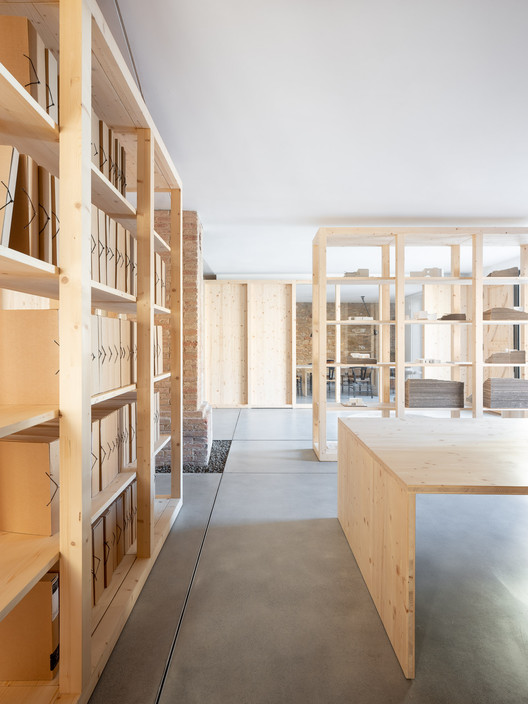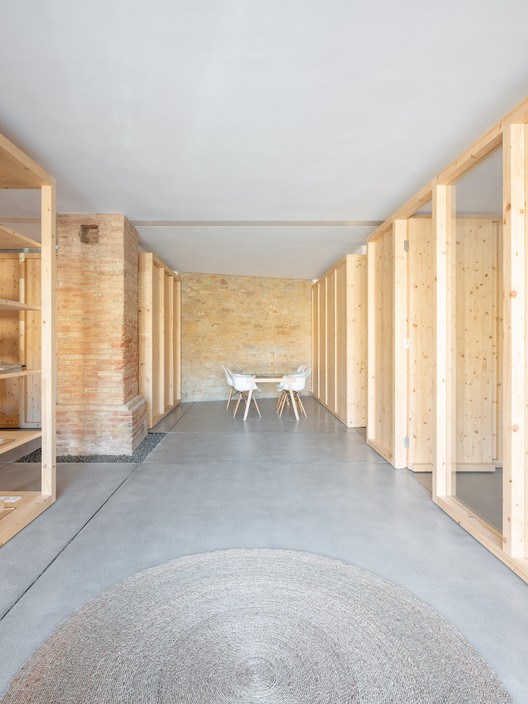
-
Architects: Nordest Arquitectura
- Area: 200 m²
- Year: 2018
-
Photographs:Filippo Poli

Text description provided by the architects. The building of the new office from Nordest Arquitectura is placed in an old barn in Palau-Sator, an old medieval village in Girona, Catalunya.
































